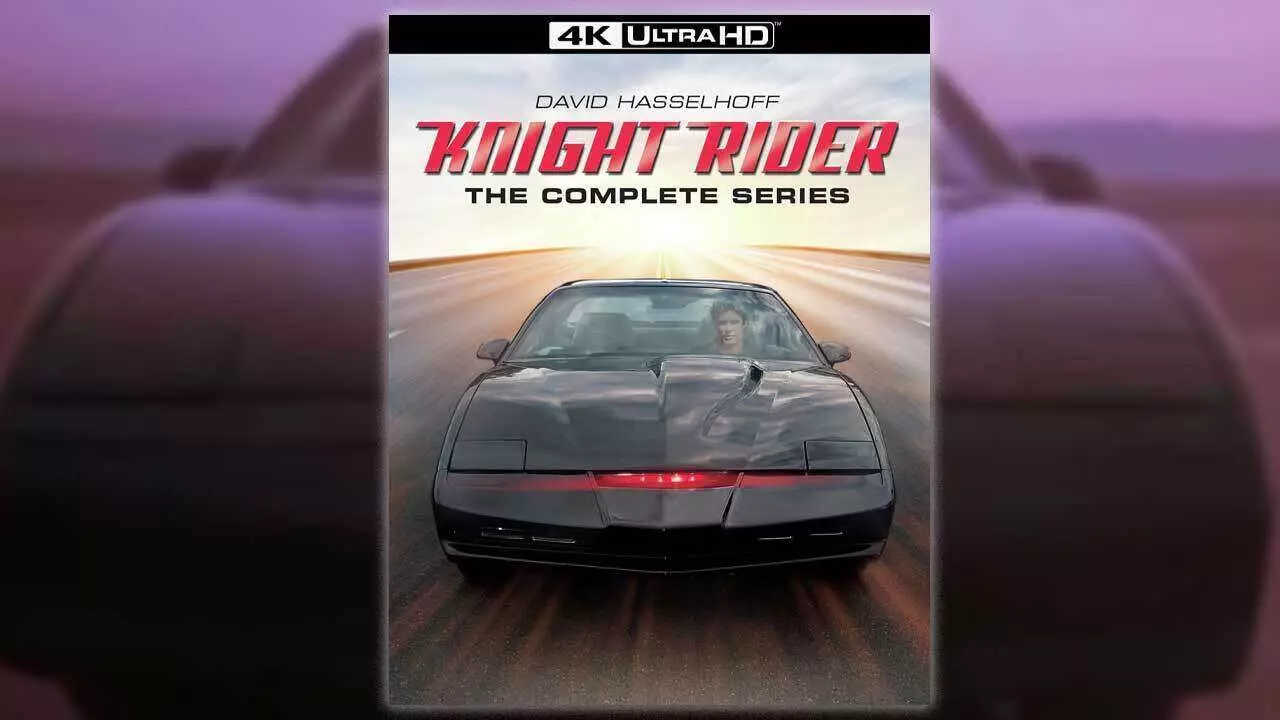Few television series have managed to carve out a cultural legacy as resilient and vibrant as *Knight Rider*. Originating in the early 1980s, the show epitomized a perfect blend of futuristic technology, high-octane action, and charismatic charm embodied by David Hasselhoff. The iconic nature of KITT—the artificially intelligent, turbo-boosted Trans Am—transcended its era, becoming a symbol of cool innovation and unwavering heroism. Despite decades passing, the show remains a touchstone for nostalgia lovers and a point of inspiration for modern creators new to the franchise. Its classic aesthetic, combined with pioneering special effects for its time, cements *Knight Rider* not merely as entertainment but as an emblem of technological optimism and rebellious spirit.
The Significance of a Modern Rebirth in 4K
The recent announcement of *Knight Rider: The Complete Series* in stunning 4K Blu-ray format signals more than just a re-release—it’s an acknowledgment of the show’s timeless appeal. This upgrade does more than enhance visual fidelity; it invites a new audience to engage with a series that once defined technological coolness on primetime television. By remastering all 90 episodes, the creators are not merely preserving nostalgia but elevating it, allowing viewers to experience the show’s action sequences, special effects, and cinematography as if it were produced yesterday. Furthermore, the inclusion of *Knight Rider 2000*, a seldom-seen TV movie, offers fans a deeper dive into the franchise’s evolving narrative universe, bridging the gap between the original series and its attempts at future expansion.
Behind the Scenes: Celebrating Innovation and Cultural Impact
What truly sets *Knight Rider* apart is its behind-the-scenes narrative—an often-overlooked element that contributes substantially to its legacy. The upcoming documentary, *Knight Rider: Behind the Wheel*, promises an insightful peek into the show’s technological feats, from the AI systems that made KITT come alive to the daring stunts that thrilled audiences. It’s a testament to the ingenuity of the production team, who melded practical effects and emerging computer technology to create scenes that still resonate today. The commentary tracks and interviews with cast and crew, especially Hasselhoff’s reflections, offer an intimate understanding of the show’s impact on popular culture. They affirm that beyond its flashy gadgets and smooth crime-fighting, *Knight Rider* represented hope in a futuristic vision, where technology was a force for good.
Why *Knight Rider* Remains Relevant Today
In an age dominated by sleek, autonomous vehicles and AI-powered gadgets, *Knight Rider* holds a mirror to the dreams—and perhaps the anxieties—surrounding technological integration into daily life. The franchise’s enduring popularity has inspired a host of imitators and spiritual successors, such as *Viper*, which, while lacking talking cars, captured the same sense of adventure and technological innovation. The show’s premise of a lone hero teaming up with a high-tech machine continues to fascinate audiences hungry for stories about human ingenuity and heroism. Its resurgence in high-definition format underscores our collective fascination with that era’s vision of the future—a future where machines and humans collaborate for justice.
Final Reflection: A Cult Classic That Continues to Drive Innovation
*Knight Rider* is more than a relic of 1980s television; it is a blueprint for how tech, personality, and storytelling can come together to forge something truly iconic. As the series receives a modern overhaul, it sparks both nostalgia and curiosity—reminding us that the thrill of a hero, a talking car, and a mission to serve justice never truly goes out of style. In a world increasingly obsessed with technological progress, *Knight Rider* remains a shining example of that youthful optimism and daring imagination that pushes us to dream bigger. Its ongoing reimagining proves that some legends are built to last—constantly evolving but forever cool.

